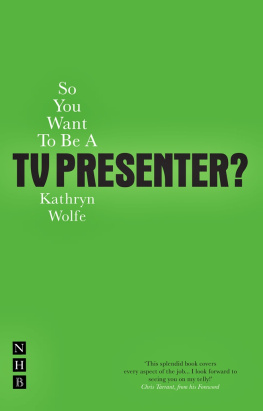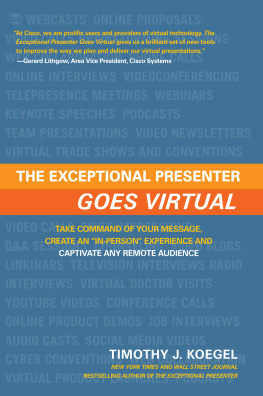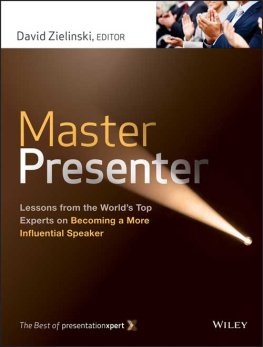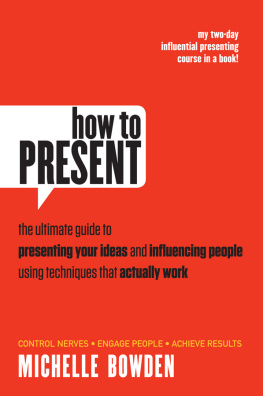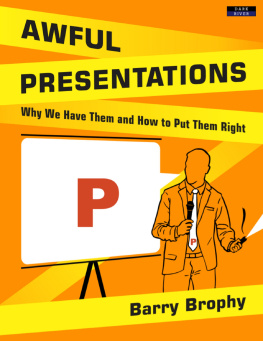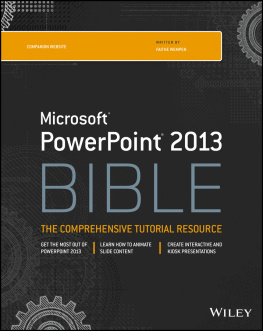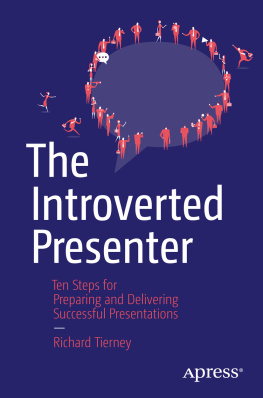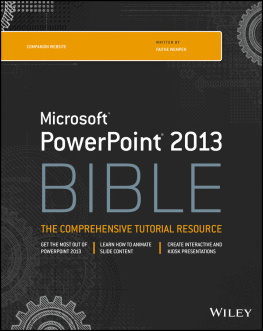
For all my family,
especially Arif, Omar and Soraya
for their patience and support,
and Ronnie and Rose
for their never-ending help and guidance
Foreword
I feel like Ive been on television for ever. I know what youre thinking from the state of me, I look like Ive been on television for ever!
It certainly has been a very long time since I first appeared in front of a TV camera back in 1972 on ATV in Birmingham. I worked on the nightly regional-news programme in the Midlands for years and started doing a little childrens show called Tiswas at the weekends. So, for seven or eight years it meant I was on television for six or seven days a week, usually live.
And I would absolutely recommend it to anybody. I thoroughly enjoyed it, Ive had a great life out of it, Ive travelled the world working, and Ive been lucky enough to interview just about everybody I ever wanted to meet. When you do it night after night, you almost forget that youre on camera.
But its amazing how much things have changed. In those early days there was no Autocue. This meant we actually had to learn our links and read the news off a clipboard. I remember the wonders of Autocue when it first arrived it was pretty basic. The scripts you put into the machine were actually rolls of paper and you could make changes on your own script with a magic marker just seconds before you went on air. There is now a whole new breed of television presenters who have only ever grown up with Autocue. Some handle it very well, some do it in a rather glassy-eyed way, like a rabbit blinking into the headlights, and one or two do it well but havent got an ad lib in their body.
This splendid book covers every aspect of the job from how to talk to the camera, how to overcome nerves, how to write scripts and even how to choose the right agent. Its all good stuff, particularly important is Kathryns suggestion that if you need a demo tape you should get a few quid together, any way that you can, and make a really good quality product. If its low-grade and shoddy, although you personally may be very good, producers will tend to reach for the waste bin and chuck your tape away without giving it more than a cursory glance. Do the best quality tape that you can, send it to absolutely everybody, be prepared for rejection and disappointment, but persevere and pester, pester, pester. There are a huge number of television channels these days and they are increasing all the time. If you have the talent, and the determination you will succeed.
Good luck and I look forward to seeing you on my telly!
Chris Tarrant
Introduction
In 2004, after twenty-five years as a TV director, I gave a one-day workshop in TV presenting at the Actors Centre, London. It was called Pukka Presenting, and the class was full to overflowing, with a waiting list actors were desperate to discover their TV-presenting potential and gain another string to their bow.
Since then I have given TV-presenter training to packed workshops all over the UK, not just attended by actors but by people from all walks of life, from an infinite variety of backgrounds and professions, and of all ages.
In 2006, I was appointed Senior Lecturer in Media Performance at the University of Bedfordshire, a post that has given me the opportunity to teach TV presenting within higher education. The good news is that whether in short courses, further education, adult education or higher education training works! Students have successfully passed auditions, acquired experience, started presenting, and are getting paid for it!
This book is based on my experiences of tutoring and working with presenters and is intended as a guide to help you approach the world of TV presenting a practical handbook of training and job-seeking advice. It is packed with tips from presenters who have fresh details of what to expect in screen tests and in the industry, full of success stories, and anecdotes about what you can expect.
Although some of the contributors may be well-known to you, most are not household names (yet!), but they have started the ball rolling and they have newly acquired experiences to pass on. This is the tip of the iceberg there are thousands of people earning money from presenting, and this book will give you a unique insight into how they got started. If you are considering entering the TV-presenting industry then the quotes from working presenters will be illuminating a rich source of experience and support to help you, too, enter the profession.
In addition, experts from several areas of TV production have given their words of wisdom and advice on TV presenting, from agents and producers to executive producers and directors, ranging from shopping channels to childrens programmes to weather presenting.
This book aims to show you that the world of TV presenting is not a closed shop in fact, there has never been a better time to enter. With the explosion of TV channels and online platforms, the demand for presenters is still increasing.
You can read answers to frequently asked questions such as How do I train as a TV presenter?, Do I need an agent?, What should I put on my showreel?, What happens in TV-presenting auditions?, If I dont have any experience, how can I write a presenting CV? and How do I get a presenting job?
The following chapters will concentrate on the key features of your training, and provide invaluable advice on the practicalities of finding work. You will have to do your bit too! This is a hands-on training manual and you will need to hone your skills. You should practise the exercises to enable you to speak to camera naturally, and you will need to put in the time required to find and apply for presenting jobs.
Included in this book are practical exercises for you to try out at home. Ideally, you should use a video camera to record your work and play it back to check how you are doing. Camcorders can be purchased very reasonably online you do not need a state-of-the-art model, or even a new one. A second-hand one is fine, or perhaps join forces with some like-minded friends, or borrow one. Some presenters just practise in front of the mirror, which can be very useful, but that has the disadvantage of not giving you a record of your work.
My interests and experience combine industry practice with education and teaching, so I am aiming to give you a set of skills with which you will be able to have fun, earn money, and enhance or even change your existing career.
In the Appendix, you will find checklists, which you can photocopy, to help you assess your progress. These self-evaluation strategies will enable you to continually monitor your development through the practical exercises but you must be honest with yourself! There is a troubleshooting guide to help you double-check your work, and there are pages of resources to point you on your way. With the skills you can acquire from this book you will learn how to improve your performance; the self-assessment tools will give you the ability to reflect and think about your work to help you to recognise the good bits and the not-so-good bits!
TV-presenting jobs are usually short contracts or part-time, so you will not necessarily need to give up your day job the choice is yours!
If youve ever had a dream, ever said to yourself, I could present that!, then my advice is to give it a go!
Good luck.
Before you start
How to video yourself
Throughout this book you will find exercises to improve your technique (these are marked with a TV icon 
Next page
